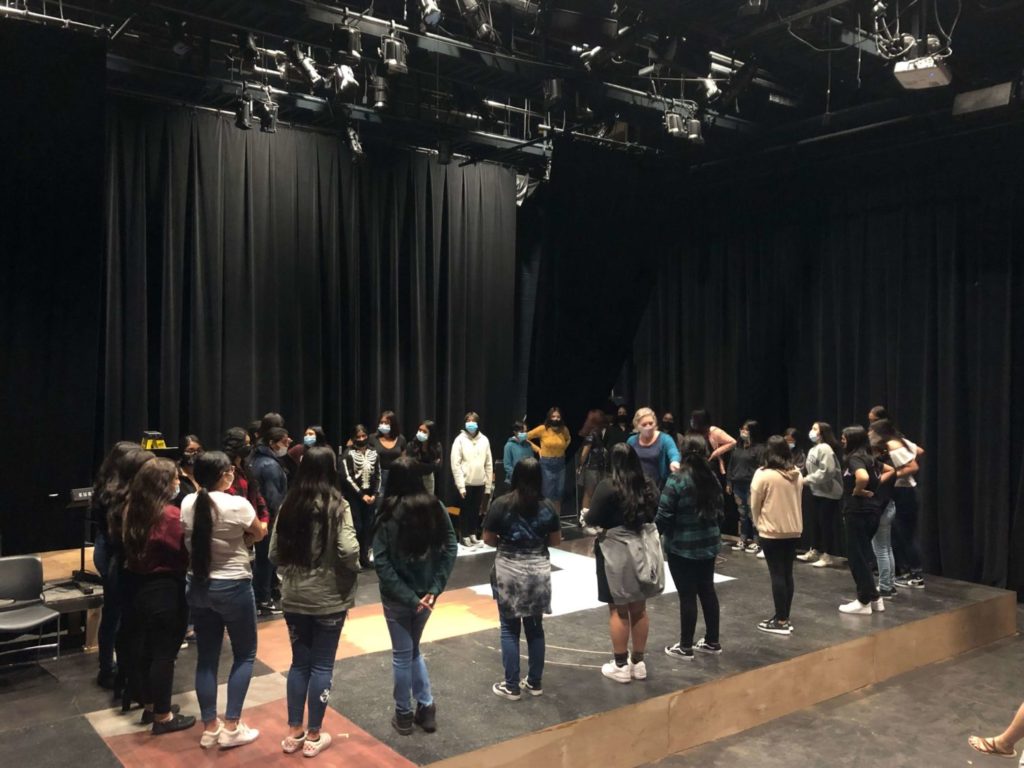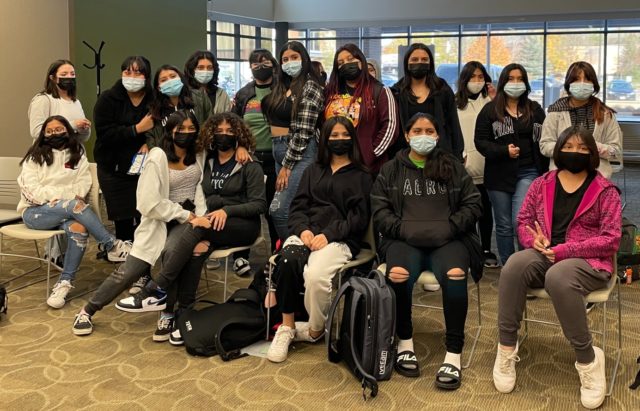As a foreign-born faculty member, Dr. Beatriz Aguilar of Edgewood College’s music department has experienced her fair share of discrimination throughout her years in higher education. Despite being in leadership positions at almost every stage in her career, Aguilar has had her authority undermined and intelligence doubted because of the biases that others have about international professionals, especially those who are non-native English speakers with accents.
Knowing that this is not an isolated phenomenon, Aguilar has sought tirelessly to create opportunities for growth and advancement for Latina girls. She has most recently channeled this passion into developing the Institute for the Empowerment of Latina Women, a program aimed at giving Madison-area middle and high school Latina girls the soft skills to navigate both higher education and different industries.
Aguilar first noticed discrimination against Latina students early in her career in the U.S.. In 2005, she launched her first group at Edgewood to encourage high school Latina students to pursue higher education.
“I started to see a lot of things like counselors telling Latina students, ‘Well you shouldn’t even worry because you’ll never go to college,’ or ‘We should be thinking about a technical degree,’ like assuming, which already closes the door,” she said in an interview.
Latina women and girls experience undeniable disparity both in the classroom and in the workplace. While women of all races are severely underrepresented in executive-level positions at Fortune 500 companies, the absence of Latina women in these positions is even more glaring. Of the 16 Latinx CEOs of S&P 500 companies in 2021, none of them are women. In early 2019, Fortune500 lost its first and only Latina CEO, who had only been appointed to the position two years prior. Additionally, while white women make 84% of what men make, Latina women consistently make 28% less than their white female counterparts.
Determined to break these cycles, Aguilar identified the introduction of soft skills to Latina students as a meaningful intervention, especially early on in their education.
“Some research has found that we … could get some softer skills that will help us be chameleons and navigate the industry, [get] the positions, and maybe from the inside, get more influence and change things,” she said. “American culture is very individualistic … so if you’re a student who is a self-advocate and you participate a lot in class, the system rewards you.
“But there is a sense in some Latino communities where, for example, there is a very big respect for the teacher. And that sometimes translates into a certain level of discomfort speaking up. And so if you don’t understand that and you don’t open your classroom in a way that is welcoming for both ways of communicating, and you just reward one way of communicating, at the very unconscious level, you are making them feel that [they] don’t belong. You have to create the context [for everyone to succeed],” she continued.
Verona Area School District Family, Staff, and Community Engagement Liaison Tamera Stanley, who is an African-American woman, thinks about it this way: “We’re emerged into a culture, but we’re existing in our own culture [too]. So it’s around us, but we’re not taught how to adapt or how to move and operate in the outside culture,” she said. “We’re not able to excel, we’re not able to get what we need because we’re not able to navigate. These soft skills are necessary to help [the students] understand how to navigate. Otherwise, we continue to be shut out, left out, looked over, and eliminated from even being considered.”
Stanley played an integral role in ensuring the participation of Latina students from Verona Area High School, Savannah Oaks Middle School, Badger Ridge Middle School, and Core Knowledge Charter School, all of which are predominantly white institutions.

The Institute for the Empowerment of Latina Women, which was first rolled out in the fall of 2021, consists of a four-week workshop series focusing on self-esteem, verbal communication, body language, and confidence. During its first iteration, each session was also supplemented with talks by Latina leaders in the community, including UW-Madison Director of Community Relations Brenda González. In addition to asking the speakers about their professional successes, students also sought advice about how to negotiate their own aspirations with the traditional gender roles their families expect them to fulfill.
From its first session, it was obvious that the program addressed a great, unspoken need for Latina students.
“I was hoping for the first time, if I could get 10 girls, that would be great. I got close to 40. And you know, they were very interested and the teachers were bringing them,” Aguilar said. “I did an exit survey for the girls and they were very happy and thought it was very useful and they were thinking of things that they hadn’t thought of before.”
In addition to learning concrete skills, both Aguilar and Staley noticed how significantly the students were impacted by their ability to be on college campuses. With sessions at both Edgewood College and UW-Madison, the students told Aguilar, “‘We liked to be in the college and we felt like we could belong here.’ That’s exactly what I was hoping to do,” she said.
Stanley knows that this is only the first step in creating long-standing institutional change for minority students. “That’s the first step to the process, is recognizing that there’s a gap. You know, we’re not alone, we’re not a unicorn in this, it exists all over the place. And during the pandemic, it just has really made it more obvious, it has really brought it to the surface of what we’re dealing with, and have been dealing with, but weren’t able to see the true colors or see what was really going on,” she said. “In anything that you do, it’s a process, right, because it didn’t happen overnight and it can’t change overnight.”
Given its success, Aguilar hopes that the institute will be able to expand and establish even more partnerships in future semesters.
“I have a dream that this program can grow and can collaborate with companies where we are working on the skills that they need and it’s just a two-way collaboration. [They] help us prepare the girls and we provide the context and the girls have a job or internships or things like that,” she said. “My dream is that this is going to grow and really create opportunities for the girls. It’s a really big dream but hopefully [it will happen] one day.”




























